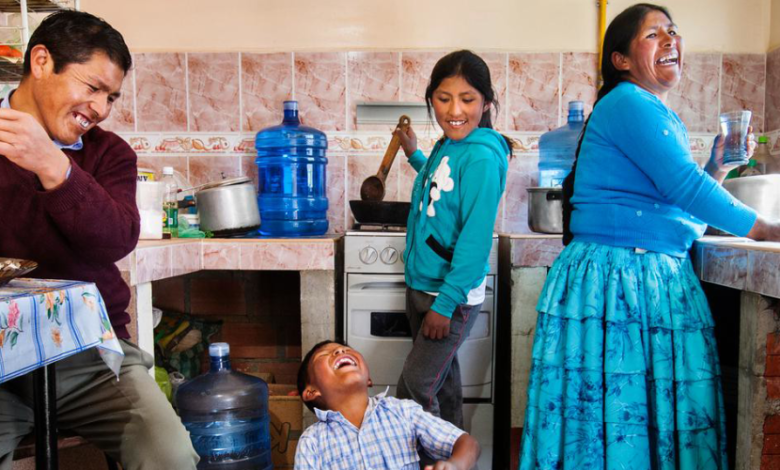Celebrating the International Day of Families: Recognizing Families as the Bedrock of Every Nation

Every year on May 15, the world comes together to mark the International Day of Families, a day established by the United Nations General Assembly to recognize the significance of families as the cornerstone of societies. In Africa, where the family unit remains deeply rooted in cultural identity, community values, and collective survival, this day resonates profoundly.
In 2025, the theme “Family-Oriented Policies for Sustainable Development: Towards the Second World Summit for Social Development” offers a timely call to action, especially for African nations. It urges governments, civil society, and communities to prioritize family-centered policies that respond to today’s global challenges: demographic transitions, urbanization, climate change, technological shifts, and migration.
The Role of African Families in Society
Across Africa, family is more than a nuclear arrangement, it is a web of interdependence, a safety net, and a source of identity. Extended family systems, where grandparents, aunts, uncles, and cousins are vital contributors to child-rearing—remain prevalent across the continent. In countries like Nigeria, Ghana, Uganda, and South Africa, children are often considered a collective responsibility, and family ties stretch far beyond bloodlines, embracing community-based parenting and solidarity.
This cultural richness becomes especially important in the face of rising global challenges. As African societies grapple with youth unemployment, rural-to-urban migration, displacement due to conflict or climate change, and the digital divide, it becomes clear that sustainable development cannot occur without investing in the family unit.
History and Global Context
The International Day of Families was officially proclaimed by the UN in 1993 through Resolution A/RES/47/237, following years of advocacy and concern over growing family-related challenges. The UN recognized that in the wake of economic and demographic shifts, families were being stretched in new ways. For African countries, these shifts—colonial legacies, civil wars, economic dependency, pandemics like HIV/AIDS and COVID-19—have had far-reaching impacts on family dynamics.
Yet, African families have shown resilience. Grandmothers raising orphans, women holding communities together in displacement camps, and youths supporting siblings through school by working in informal sectors are just a few examples of this strength. These lived realities underscore why family-oriented policies must move from discussion to deliberate action.
The 2025 Theme: A Continental Imperative
The 2025 theme pushes governments toward implementing family-oriented policies that are integral to sustainable development. It aligns with the 2030 Agenda for Sustainable Development and the African Union’s Agenda 2063, which both recognize that investing in people and families is foundational for peace, prosperity, and progress.
For Africa, this means:
-
Improving parental leave and childcare support in both formal and informal workspaces.
-
Expanding healthcare systems that include maternal, newborn, and adolescent care.
-
Protecting children’s rights and strengthening child safeguarding frameworks.
-
Supporting family farmers and rural households affected by climate change.
-
Ensuring inclusive digital literacy and technology access for family advancement.
The International Day of Families is more than just a symbolic observance. It serves several key purposes, especially relevant in African contexts:
- Celebrate the Diversity of Families
- Promote Family Well-being
- Increase awareness of family-related challenges
- Encourage Family-oriented development policies
Here are ways individuals, communities, and policymakers across Africa can celebrate and observe this meaningful day:
i. Community Dialogues and Townhall Meetings
Bring families, local leaders, and government representatives together to discuss pressing family issues and solutions such as school access, safety, housing, and income.
ii. Intergenerational Storytelling and Cultural Events
Celebrate the wisdom of elders and preserve cultural heritage through storytelling, dance, and traditional food-sharing.
iii. School and Faith-Based Programs
Use schools, mosques, and churches to host events and lessons that highlight the importance of strong families and moral values.
iv. Media Campaigns
Local radio, television, and social media can spotlight inspiring family stories, share information on policies, and encourage healthy relationships and parenting.
Activities With Children to Reinforce Bonds
-
Visit heritage sites or museums to connect children with their roots
-
Organize family reading sessions with African children’s books
-
Engage in storytelling with proverbs, songs, and folk tales
-
Cook a traditional meal together
-
Plant a tree or start a small family garden
-
Create a family vision board focused on education, health, and dreams
These simple, culturally resonant activities strengthen bonds while affirming shared values.
Conclusion
As we observe the 2025 International Day of Families, let us honor not only the love shared within our homes but also the policy and systemic support required to keep our families resilient. Strong families build strong nations. And as Africa looks toward the Second World Summit for Social Development, it must do so with a renewed commitment to protecting, empowering, and investing in families, so that together, we can secure a more inclusive and sustainable future.





